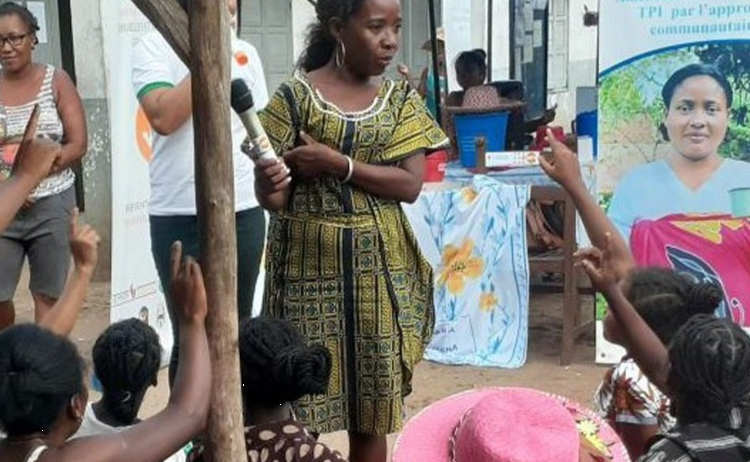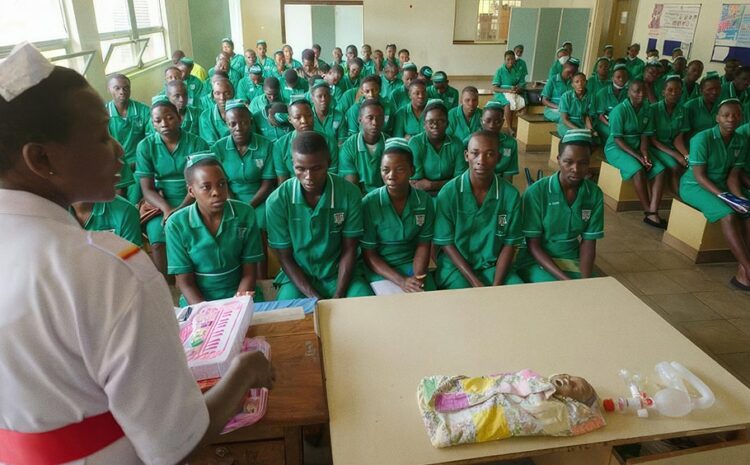May 4, 2016
Health Care Workers | Quality of Care
Kasaigi: A midwife whose heart beats for mothers, babies

By Hope Mafaranga. Read the original post here.
Before she leaves her house in Mafubira sub-county, Jinja district to Buwenge Hospital, locally known as Kivejinja, Agnes Kasaigi, kneels to ask God for favour to save mothers in labour and their newborn babies.
What makes her tick
She says she cannot stand seeing a mother in pain. “Helping any mother and getting her baby out of danger gives me satisfaction.” Kasaigi, with two other midwives, attend to 50 women weekly during antenatal and they deliver between 80 and 120 mothers a month, according to the hospital’s records. According to World Health Organisation, a midwife should deliver 150 babies a year.
She said about 270 women attend antenatal care, but an average of 120 come back to the facility for delivery. “We are three midwives who work in shifts. Being the senior one and living near the hospital, I attend to more mothers than my colleagues,” she says. Joan Babirye, one of the mothers whom Kasaigi helped deliver, said she is quick and most mothers prefer her to younger midwives.
“I have delivered my three children with Kasaigi’s help. She handled me well and I always refer my friends to her,” she said. The passion for her profession has also come with numerous awards and trainings according to the Buwenge Hospital medical superintendent, Dr Hamzah Ndifuna. “The hospital has won many awards because of her skills,” Ndifuna says. He adds that Kasaigi is good at detecting complicated cases. “If she calls, I come prepared to go to the theatre because by the time she does, then the situation is serious,” he said.
Challenges
One of the greatest challenges is women delaying to seek medical assistance during delivery and those who do not attend antenatal clinics. others first go to traditional birth attendants, who complicate the situation further. She also said lack of the involvement of men in childbirth preparation is a challenge. She explains that women come without kits, while others have sexually transmitted diseases.
“When a woman has STDs, it requires that her partner is also treated. However, when a man does not turn up, it does not help because even if we treat the woman, she will be re-infected,” she said.
She urged men to accompany their wives for antenatal so that they get counselling and family planning services as a couple. She also said the midwives have to fight the misconception the community has about them and instil confidence in mothers that they will receive professional services when they go to deliver their babies at the health facilities.
She said some people have tarnished the image of midwives. “There is a lot of misinformation that we are rude, which is not true. I always go out with the village health team members to sensitise women and telling them the truth and the benefits of delivering from a health facility by a skilled personnel,” Kasaigi says.
The 2014 International Midwife Award winner started her career at Jinja Hospital in 1984, after getting a certificate in midwifery from Jinja School of Nursing and Midwifery. A few years later, Kasaigi had premature twins and left her job to nurse them. The twins, who are now 23 years old, completed university recently.
Back to the ward
After staying home for 14 years, Kasaigi opted to return to the maternity ward, but failed to get a vacancy at a government hospital. “While I was at home with the twins, midwives were called to update their files, but I missed that exercise. So when I was ready to return to work, it was hard to trace my file and I lost out,” she said. She did not give up the search until she eventually got a job at Buwenge, a private hospital in Jinja.
Inspiration
As a young girl, Kasaigi loved to take care of children and her mother, Clementina Waibi, always encouraged her to become a midwife. Her desire was concretised by one of her neighbours, Sister. Okoth, who was a nurse. “Okoth used to dress smartly and was kind. Her character influenced me and I made up my mind to give midwifery my all,” she says.
Trainings
Kasaigi has been trained by organisations such as PACE, Profam, Save the Children, Marie Stoppes and Ministry of Health to attain skills in family planning services, managing HIV-positive mothers, kangaroo care, post-abortion management and helping babies to breathe.
Training other midwives
Whenever she attends training, Kasaigi offers what she calls continuous medical education to her colleagues. “I carry material to teach them the skills I have learnt and also train our sweepers on infection control,” the mother of four said.
Calls for government help
Kasaigi calls on the Government to recruit more midwives and pay them well so that they can save mothers and their babies. She says a midwife with a certificate earns sh200,000, but they need to be paid sh600,000.
Place of birth
Kasaigi was born in Namisambya village in Kamuli district in 1963 to Albert and Clementina Waibi. She is the fifth of 15 children born by her father’s two wives.

